Humanities at Hertog
Choose a great literary work to study alongside a master teacher and engaged peers.
in the humanities
& American politics.
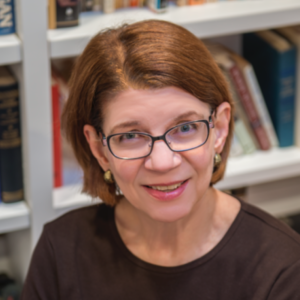
Martha Bayles
Martha Bayles is an Associate Professor of Humanities at Boston College, where she teaches a year-long course titled, “From Homer to Dante” and various senior seminars. Her research centers around popular culture and cultural history. She has previously served as a lecturer at Harvard University and Claremont McKenna College.
Eliot Cohen
Eliot Cohen is the Robert E. Osgood Professor at the Johns Hopkins University’s School of Advanced International Studies (SAIS) where he has taught since 1990. He served as Dean of SAIS from 2019 to 2021. Cohen received his BA and PhD degrees from Harvard University and after teaching there and at the Naval War College founded the Strategic Studies program at SAIS. His books include The Big Stick (2017), Conquered into Liberty (2011), and Supreme Command (2002). In addition to public service in the Department of Defense he served as Counselor of the Department of State from 2007 to 2009. He writes frequently for major newspapers and is a contributing writer at The Atlantic.
Matthew Continetti
Matthew Continetti is resident fellow at the American Enterprise Institute, Prior to joining AEI, he was Editor in Chief of the Washington Free Beacon. His articles and reviews have appeared in The New York Times, The Wall Street Journal, and The Washington Post.
Jacob Howland
Jacob Howland is a Senior Fellow at the Tikvah Fund. His research focuses on ancient Greek philosophy, history, epic, and tragedy; the Hebrew Bible and the Talmud; Kierkegaard; and literary and philosophical responses to the Holocaust and Soviet totalitarianism. His most recent book is Glaucon’s Fate: History, Myth, and Character in Plato’s Republic.
Robert C. Bartlett
Robert C. Bartlett is the Behrakis Professor of Hellenic Political Studies at Boston College. His principal area of research is classical political philosophy, with particular attention to the thinkers of ancient Hellas, including Thucydides, Plato, and Aristotle. He is the co-translator of a new edition of Aristotle’s Nicomachean Ethics.
Peter Berkowitz
Peter Berkowitz is the Tad and Dianne Taube Senior Fellow at the Hoover Institution, Stanford University. He studies and writes about, among other things, constitutional government, conservatism and progressivism in America, liberal education, national security and law, and Middle East politics.
Sen. Tom Cotton
Tom Cotton is a United States Senator from Arkansas. His committees include the Banking Committee, where he chairs the Economic Policy Subcommittee, the Intelligence Committee, and the Armed Services Committee, where he chairs the Air Land Power Subcommittee. He served nearly five years on active duty in the U.S. Army as an Infantry Officer.
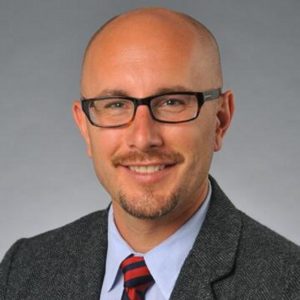
Daniel DiSalvo
Daniel DiSalvo is a Senior Fellow at the Manhattan Institute’s Center for State and Local Leadership and an Assistant Professor of Political Science at The City College of New York-CUNY. His scholarship focuses on American political parties, elections, labor unions, state government, and public policy.
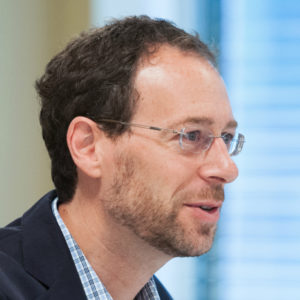
Bryan Garsten
Bryan Garsten is Professor of Political Science at Yale University. He writes on questions about political rhetoric and deliberation, the meaning of representative government, the relationship of politics and religion, and the place of emotions in political life.
Leon R. Kass
Leon R. Kass, M.D., is the Addie Clark Harding Professor Emeritus in the Committee on Social Thought and the College at the University of Chicago and Emeritus Scholar at AEI. He was the chairman of the President’s Council on Bioethics from 2001 to 2005.
Yuval Levin
Yuval Levin is a Resident Scholar and Director of Social, Cultural, and Constitutional Studies at the American Enterprise Institute and the Editor of National Affairs magazine. Mr. Levin served on the White House domestic policy staff under President George W. Bush.
Harvey Mansfield
Harvey C. Mansfield is the William R. Kenan, Jr., Professor of Government at Harvard University. He was Chairman of the Government Department from 1973–1977, has held Guggenheim and NEH Fellowships, and has been a Fellow at the National Humanities Center.
H. R. McMaster
H. R. McMaster is the Fouad and Michelle Ajami Senior Fellow at the Hoover Institution, Stanford University. Previously, he served as the 26th assistant to the president for National Security Affairs and as a commissioned officer in the United States Army for 34 years before retiring as a Lieutenant General. He is author of Battlegrounds: The Fight to Defend the Free World.
Thomas Merrill
Thomas Merrill is an associate professor in the School of Public Affairs at American University. He is the author of Hume and the Politics of Enlightenment. He is also the co-editor of three edited volumes, including The Political Thought of the Civil War. He was a senior research analyst for the President’s Council on Bioethics during the George W. Bush Administration.
Diana Schaub
Diana J. Schaub is Professor of Political Science at Loyola University Maryland and a member of the Hoover Institution’s task force on The Virtues of a Free Society. From 2004 to 2009 she was a member of the President’s Council on Bioethics.
Vance Serchuk
Vance Serchuk is Executive Director of the KKR Global Institute and an Adjunct Senior Fellow at the Center for a New American Security. Prior to joining KKR, Mr. Serchuk served for six years as the senior national security advisor to Senator Joseph Lieberman (I-Connecticut).
Darren Staloff
Darren Staloff is Professor of History at the City College of New York and the Graduate Center of the City University of New York. Professor Staloff has published numerous papers and reviews on the subject of early American history.
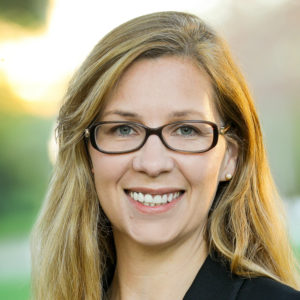
Jenna Silber Storey
Jenna Silber Storey is Assistant Professor in Politics and International Affairs at Furman University and Executive Director of Furman’s Tocqueville Program. She is the co-author of a book with Benjamin Storey: Why We Are Restless: On the Modern Quest for Contentment (Princeton University Press, 2021). Further information about her work can be found at www.jbstorey.com.
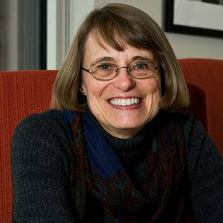
Vickie Sullivan
Vickie Sullivan is the Cornelia M. Jackson Professor of Political Science and teaches and studies political thought and philosophy. She also maintains teaching and research interests in politics and literature. She has published extensively on Montesquieu and Machiavelli and is the co-editor of Shakespeare’s Political Pageant.
Flagg Taylor
Flagg Taylor is an Associate Professor of Government at Skidmore College. He is editor most recently of The Long Night of the Watchman: Essays by Václav Benda, 1977–1989. He is currently writing a book on Czech dissent in the 1970s and 1980s.
Adam J. White
Adam J. White is a Resident Scholar at the American Enterprise Institute, and an Assistant Professor at George Mason University’s Antonin Scalia Law School, where he also directs the Gray Center for the Study of the Administrative State at George Mason University’s Antonin Scalia Law School.
Frederick W. Kagan
Frederick W. Kagan is a Senior Instructor with the Hertog War Studies Program at the Institute for the Study of War. The author of the 2007 report “Choosing Victory: A Plan for Success in Iraq,” he is one of the intellectual architects of the successful “surge” strategy in Iraq. He is the Director of AEI’s Critical Threats Project.
Kimberly Kagan
Kimberly Kagan is a Senior Instructor with the Hertog War Studies Program and founder and president of the Institute for the Study of War. She is a military historian who has taught at the U.S. Military Academy at West Point, Yale, Georgetown, and American University.
James M. Dubik
LTG James M. Dubik (U.S. Army, Ret.) is a Senior Fellow at the Institute for the Study of War and a Professor at Georgetown University’s Security Studies Program. General Dubik has extensive operational experience in Iraq, Afghanistan, Japan, Korea, Thailand, Bosnia, Haiti, Panama, and in many NATO countries.
Stan McChrystal
Gen. McChrystal is the former commander of US and International Security Assistance Forces Afghanistan and the nation’s premier military counter-terrorism force, Joint Special Operations Command. He is best known for developing and implementing a comprehensive counterinsurgency strategy in Afghanistan, and for creating a cohesive counter-terrorism organization that revolutionized the interagency operating culture.
David H. Petraeus
General (Ret) David H. Petraeus is Chairman of the KKR Global Institute. Prior to joining KKR, Gen. Petraeus served over 37 years in the U.S. military, culminating his career with six consecutive commands, five of which were in combat, including command of coalition forces during the Surge in Iraq, command of U.S. Central Command, and command of coalition forces in Afghanistan.
John R. Allen
John R. Allen is President of the Brookings Institution and a retired U.S. Marine Corps four-star general. Previously, he was commander of the International Security Assistance Force in Afghanistan, senior advisor to the Secretary of Defense on Middle East security, and special presidential envoy to the Global Coalition to Counter ISIL.
Vincent K. Brooks
Prior to 2019, Vincent K. Brooks served as the four-star general in command of over 650,000 Koreans and Americans under arms. Brooks made history as the first African American to serve as the West Point cadet brigade commander or “First Captain” position, and he was the first cadet to lead the student body when women were in all four classes. General Brooks is mow Director of the Gary Sinise Foundation; a visiting Senior Fellow at Harvard Kennedy School’s Belfer Center for Science and International Affairs; a Distinguished Fellow at the University of Texas, with both the Clements Center for National Security and also the Strauss Center for International Security and Law; an Executive Fellow with the Institute for Defense and Business; and the President of VKB Solutions LLC.
Curtis Scaparrotti
General Scaparrotti assumed duties as Commander of European Command and as Supreme Allied Commander, Europe in late spring of 2016. He ad previously been assigned as the Commander, United Nations Command / Combined Forces Command / United States Forces Korea. He also served as the Director, Joint Staff. His awards and decorations include the Defense Distinguished Service Medal, Distinguished Service Medal, Defense Superior Service Medal, Legion of Merit, Bronze Star, and the Army Meritorious Service Medal. He has earned the Combat Action Badge, Expert Infantryman Badge, Master Parachutist Badge, and Ranger Tab.
H. R. McMaster
H. R. McMaster is the Fouad and Michelle Ajami Senior Fellow at the Hoover Institution, Stanford University. Previously, he served as the 26th assistant to the president for National Security Affairs and as a commissioned officer in the United States Army for 34 years before retiring as a Lieutenant General. He is author of Battlegrounds: The Fight to Defend the Free World.
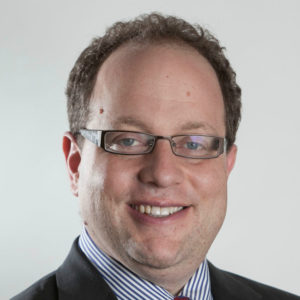
Daniel Blumenthal
Daniel Blumenthal is the Director of Asian Studies at the American Enterprise Institute, where he focuses on East Asian security issues and Sino-American relations. Mr. Blumenthal has both served in and advised the U.S. government on China issues for over a decade.
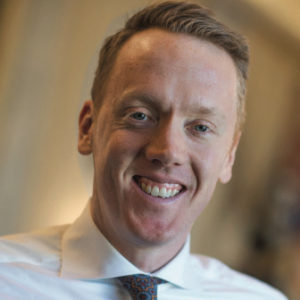
Christian Brose
Christian Brose is a Senior Fellow at the Carnegie Endowment for International Peace and the Head of Strategy at Anduril Industries, prior to which he served as staff director of the Senate Armed Services Committee. He was also responsible for leading the production, negotiation, and passage of four National Defense Authorization Acts, which set policy and authorized spending for all U.S. national defense activities.
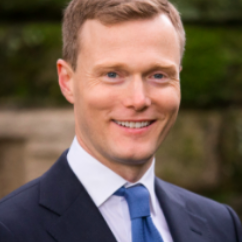
Matthew Kroenig
Matthew Kroenig is a Professor in the Department of Government and the Edmund A. Walsh School of Foreign Service at Georgetown University. A 2019 study in Perspectives on Politics ranked him as one of the top 25 most-cited political scientists of his generation. He has served in several positions in the U.S. Department of Defense and the intelligence community in the Bush and Obama administrations.
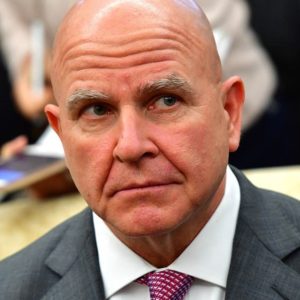
H.R. McMaster
H. R. McMaster is the Fouad and Michelle Ajami Senior Fellow at the Hoover Institution, Stanford University. Previously, he served as the 26th assistant to the president for National Security Affairs and as a commissioned officer in the United States Army for 34 years before retiring as a Lieutenant General. He is author of Battlegrounds: The Fight to Defend the Free World.
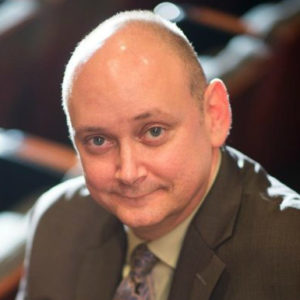
Greg Weiner
Greg Weiner is associate professor of Political Science, founding director of the Daniel Patrick Moynihan Center for Scholarship and Statesmanship, and provost at Assumption College. He is the author of American Burke: The Uncommon Liberalism of Daniel Patrick Moynihan.
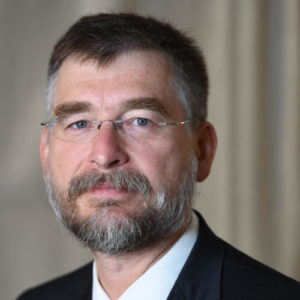
Jakub J. Grygiel
Jakub Grygiel is an Associate Professor at the Catholic University of America. From 2017–18, he was a member of the Policy Planning Staff at the U.S. Department of State. His most recent book is Return of the Barbarians: Confronting Non-State Actors from Ancient Rome to the Present.
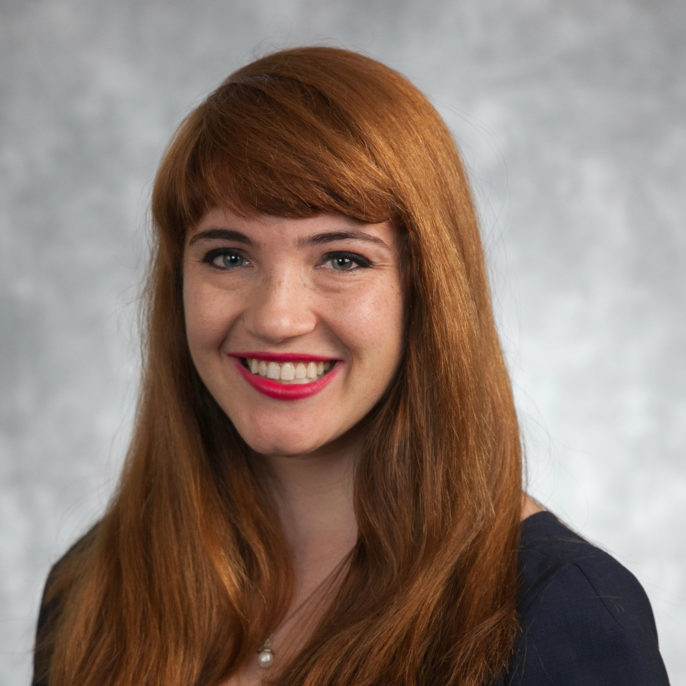
Current Position
Director, Maimonides Scholars Program
“Hertog is a great place to go if you’re interested in public policy. Whether it’s political journalism, think tanks, Hill work, or diplomacy, at Hertog you get a chance to preview all the different political lives at once. That’s something you really can’t beat.”

Director, Maimonides Scholars Program
Researcher to Bret Stephens at The Wall Street Journal, The Weekly Standard, Tikvah Fellow
St. John’s College, Annapolis
Prolific freelancer Kate Havard Rozansky has had bylines in The Washington Post, The Wall Street Journal, and The Weekly Standard. A graduate of St. John’s College, Annapolis, Kate was part of the inaugural 2010 class of Political Studies, which she credits for helping her get her start in Washington, DC. She now directs the Maimonides Scholars Program at the Tikvah Fund.
I was a sophomore at St. John’s College when I first heard about Hertog. My freshman Greek professor, Adam Schulman, nominated me for the Hertog Political Studies Program. I went into it being interested in the classics; I didn’t have any political background before that.
What drew me to the Program was the Machiavelli, the Aristotle, and the Great Books angle. That’s what I had already been studying at St. John’s and what I was most attracted to. And, of course, the chance to study with [Professors Amy and Leon] Kass was really exciting for me. So that was my pull, and all the political stuff was new to me.
Something I will never forget from Political Studies is the week we were reading Machiavelli. Henry Kissinger was coming to lecture, and I got to give an introduction about Machiavelli and Henry Kissinger in front of Henry Kissinger. That was amazing to me, and is something I will never forget. That class was one of my favorites I’ve ever been in.
At Hertog, the intellectual experience with your peers is also impressive. I met my best friend at Hertog; she was one of my roommates at Political Studies. I’m also close with a good number of other alumni from the 2010 class.
My time at The Weekly Standard was rooted in Hertog. I met the editor, Bill Kristol, at a Political Studies lecture on Tocqueville that he gave. The Political Studies scholars were given copies of The Weekly Standard, and that was my first time seeing it.
After reading The Weekly Standard, I knew that I wanted to work there. Meeting him through Hertog gave me the opportunity to ask for an internship. I don’t think I would’ve been able to do that without Hertog. This was my first exposure to that world, and I kind of ended up in journalism as an accident after the fact of wanting to work for Bill Kristol.
Hertog gave me a lot of great connections that I’m so glad to have had, especially in terms of friends, teachers, and mentors. After The Weekly Standard, I got a fellowship with the Tikvah Fund. That fellowship put me at The Wall Street Journal working for Bret Stephens, which was a wonderful experience. I helped work on a book he was writing that’s just about to come out.
I think because you have direct engagement with this high caliber of teachers, and just by virtue of being immersed in the DC world from the very beginning, Hertog is a great place to go if you’re interested in public policy.
Especially if you’re politically interested, but you’re not exactly sure what aspect of politics you want to get into. Whether it’s political journalism, think tanks, Hill work, or diplomacy, at Hertog you get a chance to preview all the different political lives at once. That’s something you really can’t beat, particularly if you go in like I did with a purely academic background.
I’d still like to be involved in politics and still writing in whatever capacity I can make a living at.
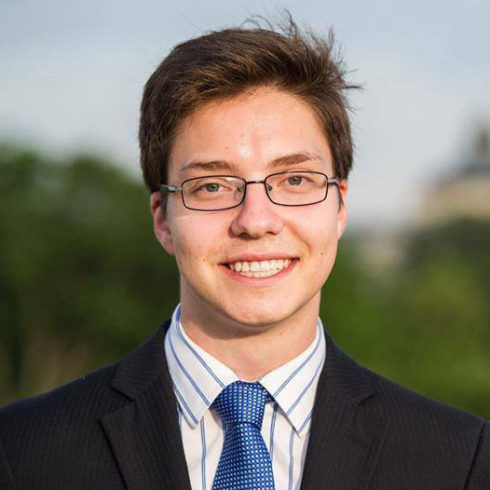

Assistant Editorial Features Editor, The Wall Street Journal
Robert L. Bartley Fellow, The Wall Street Journal; National Review
Stanford University
Elliot Kaufman, who grew up in Toronto, realized he wanted a career in ideas after spending a summer with the Political Studies Program. He works for The Wall Street Journal’s editorial page as Assistant Editorial Features Editor.
I think I came across it on the email list for The Stanford Review. The Hertog program almost sounded too good to be true. I couldn’t believe that there were opportunities out there like that—let alone that they would even pay you to take them up.
At the time I was halfway through my freshman year at Stanford, and I just thought that the stuff I was learning was interesting and the professors were okay, but it wasn’t what I was expecting: the discoveries that would make me rethink what I had come in with, really challenge myself. Hertog sounded like exactly what I was missing, even at a school like Stanford.
Looking back on it, it doesn’t seem like that much of a surprise that I’m in journalism and working for The Wall Street Journal. I started reading the newspaper very young.
I arrived at Hertog with some vague notion that I would end up working in “business.” I walked into my apartment that summer, and the three other guys living with me—two were entering Ph.D. programs in political philosophy and the other one, the slacker of the bunch I guess, was entering Columbia Law School. They put me—18 years old, the youngest student in the entire program – with the cohort’s three oldest students.
It was such a gift. Hertog opened my mind to what was possible; I saw that ideas aren’t just something you study at university. They can launch and sustain careers. And at the end of summer my roommates joined together to buy me a book, The Closing of the American Mind by Allan Bloom. A summer of Hertog and then reading that book—together the experience changed my life. I realized I was missing something, and it helped me to redirect.
I had some amazing professors who got me to ask questions I hadn’t even considered, that I didn’t know anyone was considering. It had a huge impact on me. Among those I would name Robert Bartlett on Aristotle and Darren Staloff on Lincoln.
Reading “What is Political Philosophy?” by Leo Strauss on the first night and then discussing it with my roommates—that’s the memory that stands out. It’s the intellectual excitement: Keeping the education going over dinner with my roommates, then coming back to the room and still continuing the conversation, and really living with the questions and readings.
I keep in touch with my roommates and several other people in the program, and they’re all over the place – in DC especially, New York City and elsewhere. It’s an amazing network of people.
You get sharp kids who challenge each to think deeper and consider new arguments together. You have teachers who bring the issues alive by treating them as fundamental, as human questions. I didn’t have that elsewhere, and I was grateful to be able to experience in the summer what my university should have given me.
The world of reading great books and the world of opinion journalism are not entirely shut off from each other. I find that the best opinion journalists, even if they don’t advertise how many books they’ve read in every single column, it helps inform their writing and can give them an extra edge.
On a more practical note, when I needed to find a job, one of the first people I emailed and spoke to was [Hertog director] Cheryl Miller, who was helpful in introducing me to people all over New York and D.C., and my phone call with her probably led to five other phone calls.
Another thing is meeting people your age, many of whom are going on to similar activities, like you are going out into the world together. Especially for people like me who are not from New York or DC and are moving there. Just having that network, that can be very helpful, too.
I think something similar—really I hope I can stay at the WSJ. Certainly, something that allows me to edit and write. One of the great things is that there are so many conservative magazines in New York and DC that need people to write and edit and to understand that kind of intellectual landscape and do well in it.
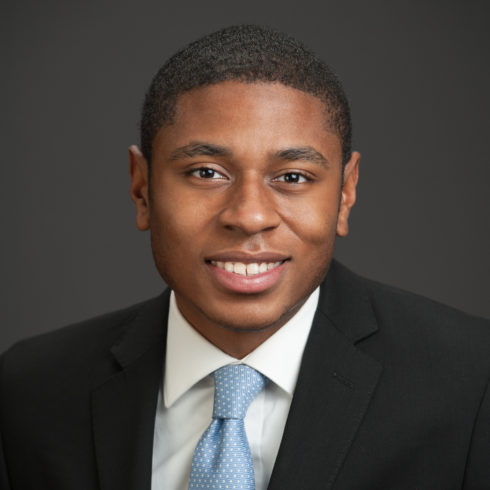

Manager - Public Equity, Gerson Lehrman Group
University of Oxford, The White House, 2013 Truman Scholar
Villanova University
Stefan Johnson has worked in the White House and been a community leader in his hometown of Philadelphia. Stefan currently works for the Gerson Lehrman Group.
I heard about the Hertog Foundation through Dr. Daniel Mark, one of my professors of Political Science at Villanova University. I applied because I thought Hertog would help me understand how theory and practice complement one another. I have had many political experiences, which might be called ‘practical,’ but previously did not have a solid foundation in the history of Western political thought. The opportunity to read canonical texts in the context of contemporary political discourse is what attracted me.
The Political Studies Program provided me with grounding in not only the theoretical aspects of how our institutions came to be, but also in the practical aspects of how they currently function. I read important thinkers such as Aristotle, Machiavelli, and de Tocqueville, while also placing these readings within the context of contemporary public policy, such as American foreign and domestic policy. On top of our seminar classes, we enjoyed weekly lectures and events with accomplished scholars, like Harvey Mansfield, and practitioners, like Congressman (now Senator) Tom Cotton.
I had many of the most intellectually stimulating conversations in my life with my peers at Hertog—both regarding the texts we read in class and about the issues of the day.
The Political Studies Program offers something that is overlooked in academia today: intellectual diversity. The Program truly attracts students from across the political spectrum, and that is something incredibly unique to Hertog.
The study of politics is critical for all people, regardless of someone’s interests or vocation. One of my friends from the program is a Physics major at Princeton, and we both agreed that the knowledge of political institutions is essential to human flourishing. Political ideas propel our republic forward.
I would recommend Hertog to anyone, especially folks who are interested in public service. During my junior year of college I had the opportunity to win the Truman Scholarship, which is awarded to students who have demonstrated leadership potential and a commitment to public service. After doing Political Studies I went back to the Truman people and said, “We’ve got to get more of our Scholars over to the Hertog Political Studies Program. It’s an incredible opportunity to learn about civic life, how to give back to one’s community and ultimately how to be a more well-rounded person.”
Life is very interesting; you never know where you’re going to end up. I helped organize the World Meeting of Families – Philadelphia 2015, an event which worked to highlight the important role of the family on a global scale. I never thought I’d help prepare for a papal visit to my hometown—it’s so hard to know what life with throw at you. But in 10 years, I hope to be in a position where I can give back to my community, especially on a local level.
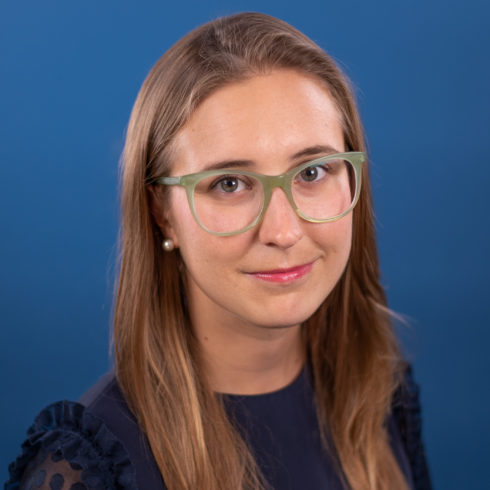

Foreign Policy Analyst
Foundation for Defense of Democracies, Brookings Institution, Fulbright Grantee, University of Durham (UK)
Pomona College
Alexandra (“Zan”) Gutowski has traveled throughout the Middle East, honing her Arabic language skills, by way of scholarships from the Fulbright Program and the Department of Defense. An alumna of the War Studies Program and Advanced Institutes, Zan has worked for the Foundation for Defense of Democracies.
One of my professors at Pomona, former Ambassador Cameron Munter, was teaching a course on international crises. He recommended that I apply to the War Studies Program. Following up on my experience at War Studies with “Lessons of the Iraq War” was simply phenomenal. I don’t think I’ve ever been in a course where I learned so much so quickly or been with such committed peers.
What keeps bringing me back to Hertog Programs is the remarkable learning environment. Since the nature of the Programs is so intense, you really get to know people quickly. Everyone is willing to get into difficult discussions about challenging issues because there is already a base of respect among the participants. I don’t know of another program where I could get such a high caliber of instruction on such complex issues.
I studied international relations and Arabic as an undergrad, and went abroad to Oman and Jordan on government scholarships. Directly after doing War Studies, I went to Doha through the Georgetown Qatar Scholarship Program. Right now, I’m in an interdisciplinary Master’s program in defense, development, and diplomacy through a Fulbright Scholarship in the UK.
I do not think I would’ve gotten into my Master’s program, nor would I be doing as well as I am, without the War Studies Program. Before War Studies, I had a bit of a sense of the diplomacy and development side of U.S. foreign policy, but I didn’t even have the vocabulary or any knowledge of the major texts and discussions in the defense realm. My first experience with the Hertog Foundation, and every follow-up course, has given me the vocabulary, background, theoretical knowledge, and confidence to engage these subjects.
There were definitely moments when developing my knowledge of defense sort of felt like learning a foreign language. During War Studies, we visited JCS Chairman General Dempsey, and Generals McChrystal and Petraeus came in to speak with us. We all had these incredibly interesting conversations about where warfare is going, and it dawned on me that even a week prior I wouldn’t have been able to participate in discussions like that because I lacked any background in the subject. To so quickly see the return on investment in starting to develop a language for discussing war was astonishing.
There is a larger flaw in the American education system at the moment, where post-Vietnam, we’re very quick to just say, “War: What is it good for? Absolutely nothing.” But the bottom line is that our country still goes to war. So let’s go to war smarter, only in the cases where we have to. Let’s have a public discussion that goes beyond the dichotomy of war: good or bad. The Hertog Foundation does a great job of filling in those gaps and moving us towards a better way of approaching these issues as a nation.
I think Hertog Programs are very empowering. One of my hesitations going in was that because the Hertog instructors are so involved in policy and have very strong political opinions, they would be pushing a certain viewpoint on the participants—that’s not what I’ve found at all.
One of the main reasons I keep coming back is that even with these extremely intellectual and experienced people leading the courses, you can have a different opinion. What they teach you to do is to develop a method to argue your own position very well. I’ve learned to put forth whatever political opinions I have, consider them rigorously, and defend them intellectually.
Definitely. There are plenty of students who have a great theoretical background in the issues, but without knowing case studies of military history and working through a conflict decision point by decision point, you’ll always be at the hands of someone else’s analysis. Hertog Programs give you the opportunity to not just learn theories, but test them. Having that much raw material of historical knowledge allows you to craft arguments for yourself and not just take someone’s analysis at face value.
The “Lessons of the Iraq War” Institute is a great example. It’s easy to have a sound-bite understanding of that conflict without really thinking through all the decisions, the evidence, the sequence of events, and the actual outcomes of certain policies as that war unfolded. The Institute deepened our knowledge of the Iraq War to such a degree where it’s impossible to walk away without a fully formed analysis of your own.
I’d really like to be involved on the civilian side of defense policy. I’m very committed to public service. I want to have a career where I’m intellectually stimulated, but also contributing to our society. I’ve been extremely fortunate in that the U.S. government has sent me all over the Middle East to learn Arabic on scholarships, so I’m eager to give back. I want to help shape U.S. policy in such a way that promotes both our national security and a positive image for America in the world.
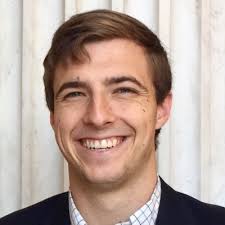

Policy Advisor, Office of Senator Marco Rubio
Office of Congressman Ralph Hall
Abilene Christian University
Caleb Orr completed his degree at Abilene Christian University while also serving as an intern and later legislative correspondent in the office of Senator Marco Rubio. Caleb participated in Hertog’s “Great Figures of the 20th Century” Weekend Seminars series, with sessions on Winston Churchill, Ronald Reagan, Margaret Thatcher, and David Ben-Gurion.
Working on Capitol Hill is all about keeping in touch with what other members of Congress are doing and partnering with them based on their expertise and abilities. So getting to know other Hill staff from Hertog, but also people in the think-tank community has been very helpful in connecting me to those resources and being able to serve Senator Rubio better as a staffer.
One-hundred percent. It’s a great entryway into the world of DC. Hertog programs provide access points into Capitol Hill and the academic community in ways that you don’t get at universities across America.
With the Weekend Seminars, the Foundation brought in some of the most well-known experts to lead seminars about each of these leaders. The ability to really have an intensive session over a weekend where you’re spending time with these scholars—in an academic setting, but also over dinner or drinks—really allowed you to get to know them as people, which made them all the more effective in conveying the subject matter. It was interesting to take that much of a deep dive into world leaders. To explore all the ins and outs, both the good and the bad of their characters, was helpful in seeing how the same traits that produce epic achievements can also lead to moral failures.
Hertog Foundation programs bring the kind of education that you expect at an elite university, combined with a grounding in the civilizational values that America was founded on and made us able to produce freedom, order, and prosperity. As a result of that, students are able to come together in an environment where you’re with many smart people from different fields and learn from one another.
It really is remarkable how vibrant the alumni community is and how much I’ve stayed in contact with people I met at Hertog. I think that’s unique, even when compared to other DC fellowship programs I’ve done. In fact, I’ve started to meet up with two other Hertog alumni about every other week to get steak dinners and just talk politics.
I want to be promoting the kind of human flourishing that I learned about at Hertog – ordered liberty, the American family, and American leadership. I want to be working for the first “reformicon” president in the White House.
Do you know a student or colleague who would benefit from one of our programs? Applicants may apply directly to our programs, but nominations are helpful for reaching and selecting great participants. Nominate a potential applicant by submitting their name, email address, and a brief description of their abilities and interest in the study of politics and policy. Program staff will follow up with an email to the nominee mentioning your nomination and offering information on how to apply.
Nominate a Student